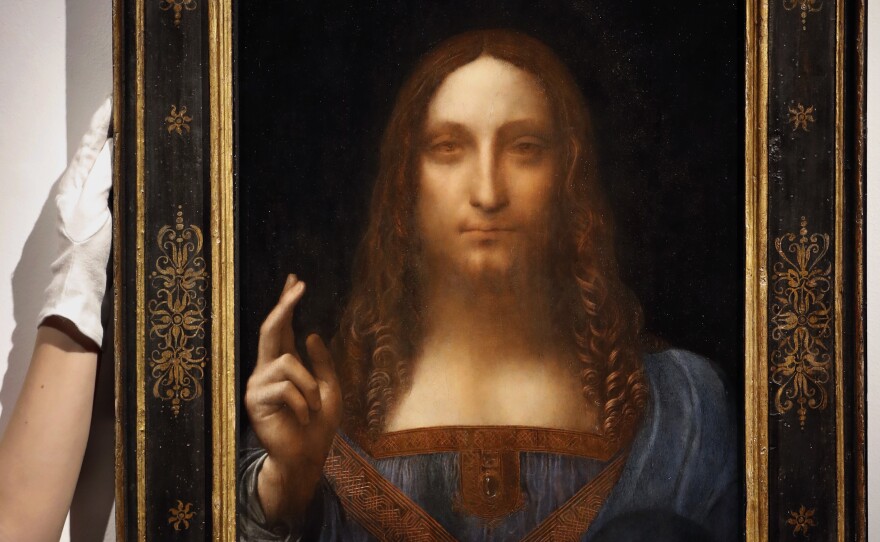The mystery over who paid a record-breaking $450 million for Leonardo da Vinci's painting Salvator Mundi at an auction last month appears to have been solved. It turns out it's Saudi Arabia's crown prince Mohammed bin Salman.
That's according to U.S. intelligence officials who keep a close eye on the kingdom's young and powerful crown prince, says the Wall Street Journal.
The winning bid in the November 15 auction at Christie's in New York was made anonymously by phone using a Christie's representative. The New York Times reported earlier that documents showed another member of the royal family, Prince Bader bin Abdullah bin Mohammed bin Farhan al-Saud, placed the final bid. But intelligence officials say Bader was just a proxy for crown prince Mohammed.
Normally, news of a wealthy and powerful member of Saudi Arabia's royal family buying a piece of art would not raise any interest. But the timing on this purchase was notable. It came just two weeks after Crown Prince Mohammed launched an anti-corruption campaign, rounding up more than 200 Saudi businessmen, ministers and princes. Most are being detained at a luxury hotel in the capital, Riyadh.
The identity of the buyer became something of a parlor game. Even executives at Christie's had questions about who it was.
Prince Bader did not present himself as a bidder until the day before the auction. At that time he put down a $100 million deposit to qualify for bidding. Christie's pressed him to establish both his identity and the source of his money. The prince's response was that he made his money in real estate, and that he was just one of some 5,000 Saudi princes.
A spokeswoman for Christie's would not comment on the identity of the buyer, but did confirm the painting would be displayed at the newly opened Louvre Abu Dhabi, in the United Arab Emirates, a branch of the Louvre Museum in Paris. Louvre Abu Dhabi also tweeted the painting would be heading its way.
The choice of painting is also curious. Salvator Mundi portrays Jesus holding an orb in his left hand while raising his right. Saudi Arabia adheres to a strict form of Islam which shuns visual portrayals of religious figures.
The Journal says the painting was offered to the royal family in Qatar — Saudi Arabia's regional rival — in 2011 for a mere $80 million. They turned it down, and did not bid on it this time around.
There are also questions about the authenticity of the painting. Some art critics say it lacks the vitality of da Vinci's work, and that it has been painted and scrubbed a number of times.
The previous owner of Salvator Mundi was a Russian businessman, Dmitry Rybolovlev, who purchased it for $127 million in 2013.
Copyright 2017 NPR. To see more, visit http://www.npr.org/.






